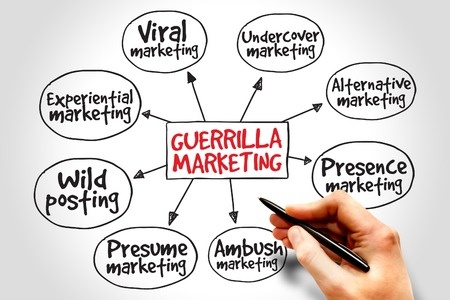24 August, 2015
Ambush Marketing has emerged as a powerful mechanism for modern day advertisement of goods and services in the fiercely competitive market. This tactical strategy enables marketing by way of association to a popular event or property with the aim to capitalize on its goodwill, usually without authorization. It has become an increasingly common practice in which a company or a brand, often an event sponsor’s competitor, attempts to deflect the audience’s attention to itself and away from the sponsor. The flagrant use of logos, designs, words, pictorials, selling of counterfeited goods, registering domain names or using famous names are instances of copyright or trademark infringement which amount to piracy and other ancillary damages by competitors causing loss to the rightful owners as well as the official sponsors. In an infamous incident cricketer MS Dhoni had reportedly come under scanner for breaching the ambush marketing clause in the Cricket World Cup 2011 wherein Dhoni had been asked by the International Cricket Council (ICC) to stop promoting and endorsing Sony and Aircel, which were the rivals of ICC's sponsors associated with the World Cup then.
Ambush marketing, also known as “parasitic” or “guerrilla” marketing is aptly called so, given its anti-competitive tendencies and its threat to brand equity. In the day and age of cut throat competition where brands are highly concerned about the efficacy of the conventional methods of publicity and adopt alternative ways to target the audiences, ambush marketing is seen as an easy formula for lucrative profits as it is cost effective and creates an instant hype around the brand. Since securing sponsorship rights is often expensive, ambush marketing allows publicity without bearing its financial brunt. It is mostly considered as aggressive advertisement with little or mostly no legal implications, more so because they are short-lived.
The very first case where the courts recognized the concept of ambush marketing was the Canadian case of National Hockey League vs. Pepsi-Cola Ltd. In this, NHL had an agreement with Coca-Cola that it would be the official drink of the tournament, and a sum of whopping US$ 2.6 million was paid by Coca-Cola for this purpose. However, the advertisement rights were given to its competitor Pepsi. When the dispute went to the court, Coca-Cola failed in its claim for passing off against Pepsi. It was held that not every kind of connection claimed can be termed as passing off. According to the court what needed to be taken into consideration was the degree of advertisement by Pepsi to the extent of misrepresenting to the public that NHL approved/authorized Pepsi’s products and whether it misled the public in general that there were any business connections between the said parties. It was held that though it was a clear case of ambush marketing, there were no legal remedies. It could be a case of trademark misappropriation, though not recognized by the courts.
At present, India does not have an express legislation to govern ambush marketing. The Indian Trademarks Act, Copyrights Act and the common law principle of passing off redress this issue. In the leading case of ICC Development vs. Arvee Enterprises, the Delhi High Court found the term ‘world cup’ to be a generic term and refused to take passing off action against the Philips Company and observed that offering tickets as prizes to the event without using the mark/logo of the event is not unlawful and further there cannot be a trademark on a generic word and fair use of the word is allowed under the Indian Trademarks Act. However, in ICC Development vs.
Ever Green Service Station, an injunction was granted against the defendant for misuse of the world cup logo only because there was a copyright infringement as the logo was held to be an artistic work under the Indian Copyright Act. Similarly, in Organizing Committee Commonwealth games 2010 Delhi vs Gets Holidays, the court granted an ex-parte ad interim injunction order restraining the defendants from using the website ‘www.commonwealthgamesdelhi2010.org’ as well as from using the Common Wealth Games logo and the mark or any other mark deceptively similar thereto amounting to passing off their goods or services as those of the plaintiff.
In the digital entertainment space, the latest controversy of Zee's digital offering ‘Ditto TV’ with the tagline ‘Who watches TV alone’ takes a dig at Star India's ‘Hotstar’ which encourages people to watch TV solo, clearly emphasizes that the vices of ambush marketing are not merely restricted to sporting events. After the recent clash between the E-commerce portals Snapdeal and Flipkart, where Flipkart announced a campaign and Snapdeal responded with a witty retort with other portals joining the bandwagon, it is clear that variants of ambush strategizing are seeping into different industries now.
As the importance of sporting, cultural, and artistic events is on a rise, so is the role of sponsorship as a means of grabbing consumers’ attention. Linked to the development of sponsorship is the growth of ambush marketing. The question as to whether ambush marketing is ethical, illegal or simply a smart marketing practice remains debatable. The precedents of the courts have set out to be a positive example of relief being granted against ambush marketers under Indian Laws despite the absence of a specific legislation. In view of the increasing instances of breach, there is a strong need for a specific legislation to regulate the practices of Ambush Marketing.
For further information, please contact:
Shristi Bansal, LexOrbis
mail@lexorbis.com






